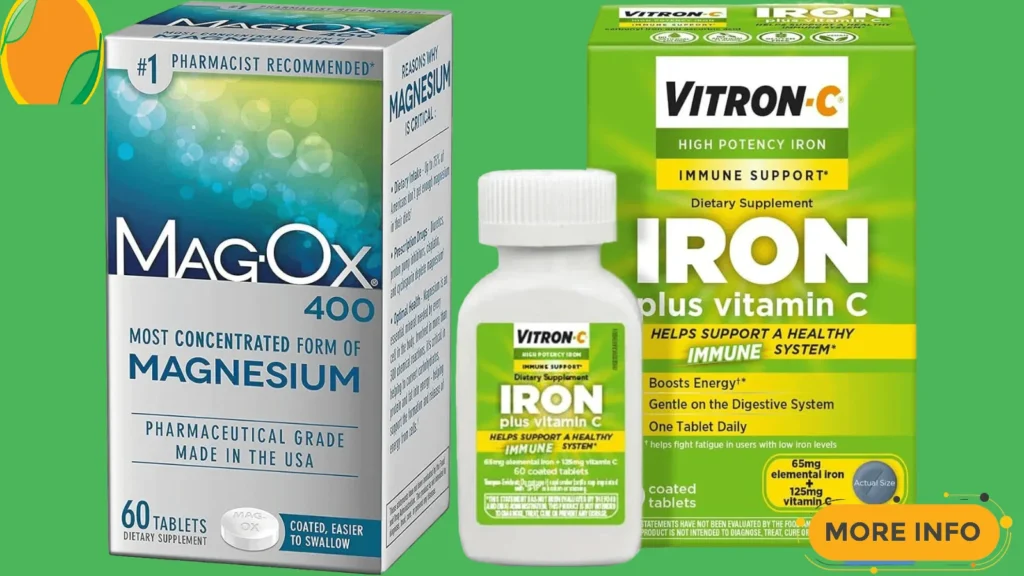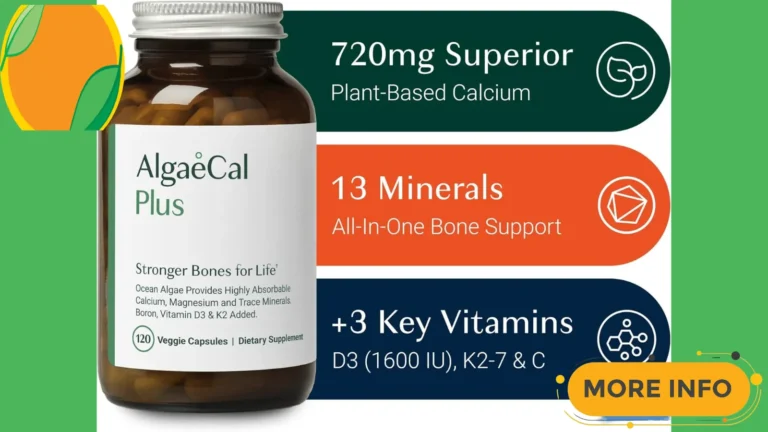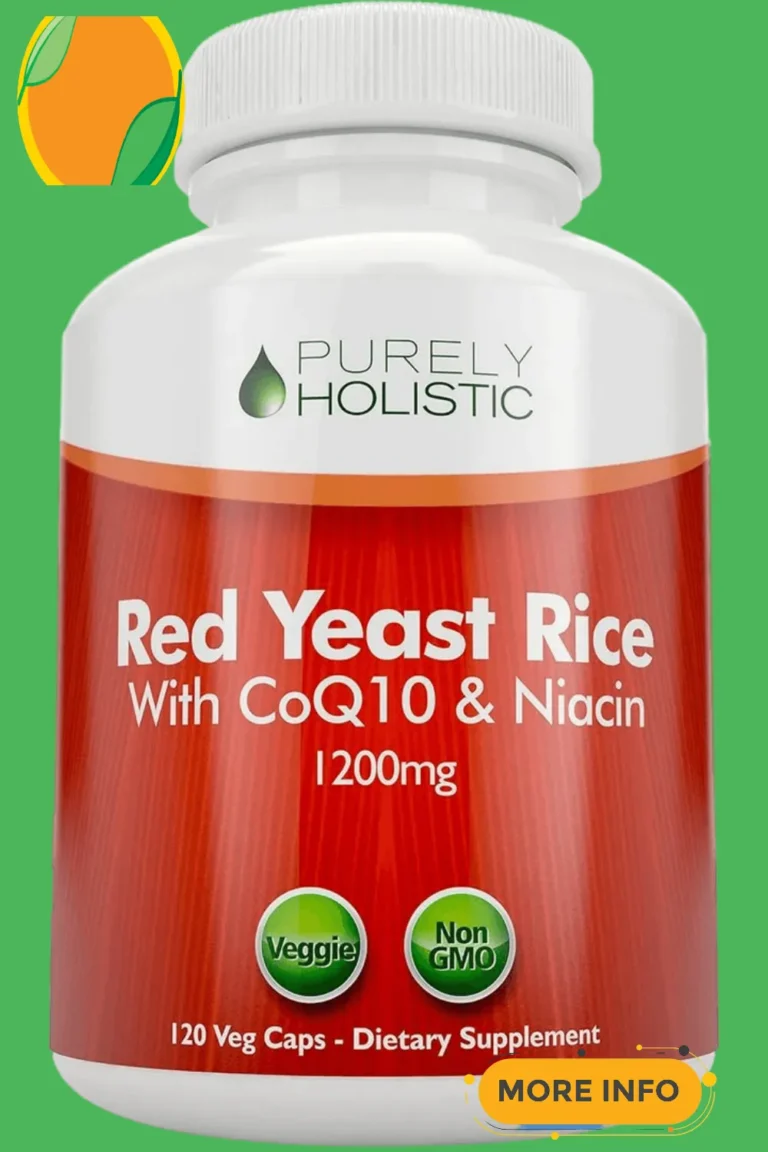Iron Supplements Benefits
Imagine waking up every morning feeling completely energized, ready to conquer the world.
For many, this remains a distant dream overshadowed by constant fatigue and lackluster stamina.
The culprit might be as simple as an iron deficiency.
Iron supplements have emerged as unsung heroes in the quest for vitality and well-being, yet their myriad benefits often go unnoticed.
In this article, we delve into the numerous advantages of iron supplements Benefits—from combating anemia to enhancing cognitive function and boosting athletic performance.
Whether you’re a busy professional, a dedicated athlete, or someone just looking to improve your overall health, understanding the benefits of iron supplements could be your first step towards a more vibrant life.
Buckle up as we explore how these small but mighty tablets can transform not just your energy levels but also your entire outlook on life.
Iron supplements play a crucial role in maintaining overall health and well-being.
Iron is an essential mineral that is necessary for the production of hemoglobin, a protein in red blood cells that helps carry oxygen throughout the body.
When iron levels are low, the body may not be able to produce enough hemoglobin, leading to a condition known as iron deficiency anemia.
This can result in symptoms such as fatigue, weakness, dizziness, and shortness of breath.
In addition to preventing anemia, iron supplements have been shown to provide a range of other health benefits.
Iron is necessary for the proper function of immune cells, helping to protect the body against infections and illnesses.
Iron also plays a key role in the production of neurotransmitters, which are important for mood regulation and cognitive function.
In this article, we will explore the various benefits of iron supplements, including their impact on energy levels, immune function, and cognitive health.
We will also discuss the different types of iron supplements available, as well as recommendations for proper dosage and usage.
Table of Contents Iron Supplements Benefits
Enhances oxygen transport in blood
By facilitating the transportation of oxygen in the bloodstream, this fundamental process supports the optimal functioning of various organs and tissues throughout the body.
The enhancement of oxygen transport enables improved energy levels and promotes overall vitality and well-being.
Additionally, this crucial mechanism aids in the efficient delivery of nutrients to cells and the removal of waste products, contributing to enhanced metabolic processes and organ function.
By ensuring an adequate supply of oxygen to body tissues, this mechanism plays a vital role in maintaining overall health and vitality.
Supports cognitive function and development
The promotion of cognitive function and development is a significant aspect influenced by this essential nutrient’s role in supporting overall health.
Through its involvement in oxygen transportation, this vital process plays a crucial role in nourishing the brain with an adequate oxygen supply, essential for optimal cognitive performance.
By facilitating the delivery of oxygen to the brain cells, this nutrient supports various cognitive functions, including memory, focus, and overall mental acuity.
Moreover, a well-oxygenated brain is better equipped to support neuroplasticity and neuronal communication, essential for learning, problem-solving, and overall cognitive development.
Ultimately, the support provided to cognitive function and development by this nutrient reinforces its importance in maintaining holistic well-being and cognitive vitality.
Aids in boosting immune system
With its pivotal role in supporting various physiological functions, such as oxygen transportation and cognitive health, this essential nutrient also aids in boosting the immune system.
A robust immune response is crucial for protecting the body against pathogens, infections, and diseases, and adequate levels of this nutrient play a vital role in maintaining immune function.
By contributing to the production and regulation of immune cells, this nutrient helps fortify the body’s defense mechanisms and enhances its ability to combat illnesses and infections.
Furthermore, this nutrient’s immunomodulatory properties help regulate the immune response, ensuring an optimal balance between defense and tolerance, which is essential for overall immune health and well-being.
The synergistic relationship between this nutrient and the immune system underscores its significance in bolstering the body’s natural defenses and promoting overall health.
Benefits hair, skin, and nails
Rich in antioxidants and essential nutrients, this vital component contributes significantly to promoting healthy skin, hair, and nails.
Through its involvement in cellular regeneration and repair processes, this nutrient aids in maintaining skin elasticity, texture, and overall appearance.
Furthermore, it plays a crucial role in collagen production, a protein essential for skin strength and resilience.
Adequate levels of this nutrient can help support healthy hair growth and enhance nail strength and quality.
By nourishing the skin, hair follicles, and nail beds from within, this nutrient fosters a radiant complexion, lustrous locks, and strong, beautiful nails, highlighting its multifaceted benefits for enhancing overall aesthetic appeal and well-being.
Combats fatigue and boosts energy
By supporting optimal oxygen transportation throughout the body, this essential nutrient aids in combating fatigue and boosting energy levels.
Through its role in forming hemoglobin, the protein responsible for carrying oxygen in the blood, this nutrient ensures that cells receive an adequate oxygen supply for energy production.
By maintaining sufficient levels of this nutrient, individuals can prevent feelings of tiredness and lethargy, promoting overall vitality and well-being.
Additionally, this nutrient plays a vital role in supporting metabolic processes that convert food into energy, further contributing to enhanced stamina and reduced fatigue.
Its ability to optimize energy metabolism underscores its importance in combating tiredness and revitalizing the body.
Can improve restless leg syndrome
Individuals suffering from restless leg syndrome may find relief by maintaining adequate levels of this vital nutrient in their body.
Research suggests that low levels of this nutrient may be associated with an increased risk of developing restless leg syndrome, a condition characterized by uncomfortable sensations in the legs and an uncontrollable urge to move them.
This nutrient’s role in promoting optimal oxygen transport and supporting metabolic processes may help alleviate symptoms of restless leg syndrome and improve overall quality of life for individuals affected by this condition.
Therefore, ensuring sufficient intake of this nutrient through appropriate supplementation or dietary sources could potentially aid in managing and reducing the discomfort associated with restless leg syndrome.
Helps prevent anemia and deficiencies
Iron plays a crucial role in the production of hemoglobin, the protein responsible for carrying oxygen throughout the body via red blood cells.
Adequate iron levels are essential for preventing anemia, a condition characterized by low levels of red blood cells or hemoglobin, leading to fatigue, weakness, and impaired cognitive function.
Furthermore, iron deficiency can also result in other adverse health effects, such as compromised immune function and developmental delays in infants and children.
Ensuring a sufficient intake of iron through supplementation or iron-rich foods can help prevent anemia and associated deficiencies, promoting overall well-being and vitality.
Supports overall physical and mental well-being
Iron, being a vital mineral, is crucial for maintaining overall physical and mental well-being by supporting essential bodily functions.
Iron is not only necessary for the production of hemoglobin but also contributes to various enzymatic reactions in the body that are imperative for energy metabolism and overall health.
Adequate iron levels are associated with improved cognitive function, as iron plays a role in neurotransmitter synthesis and brain health.
Furthermore, iron deficiency can lead to symptoms like fatigue, weakness, and decreased mental clarity, highlighting the importance of maintaining optimal iron levels for sustained physical and mental wellness.
Iron supplementation or incorporating iron-rich foods into one’s diet can help support these functions and contribute to an individual’s overall health and quality of life.
In conclusion, iron supplements play a crucial role in maintaining optimal health by helping to prevent and treat iron deficiency anemia, which can lead to fatigue, weakness, and other serious health complications.
These supplements are especially beneficial for individuals with specific medical conditions, such as chronic blood loss, pregnancy, or iron malabsorption issues.
However, it is essential to consult with a healthcare provider before starting any new supplement regimen to ensure it is safe and appropriate for your individual needs.
Incorporating iron-rich foods into your diet is also an effective way to boost iron levels naturally.
Overall, the benefits of iron supplements in addressing iron deficiency cannot be overstated, making them a valuable tool in supporting overall well-being and vitality.
FAQ
What are the main health benefits of taking iron supplements?
Iron supplements can help prevent iron deficiency anemia, improve energy levels, support healthy pregnancy outcomes, aid in muscle function, boost immune system function, and promote better cognitive health.
Iron is important for the production of hemoglobin, which carries oxygen throughout the body, and plays a crucial role in many bodily functions.
However, it is important to consult with a healthcare provider before starting iron supplements to determine the appropriate dosage and ensure there are no underlying health conditions that may be affected by iron supplementation.
How can iron supplements help improve energy levels and combat fatigue?
Iron supplements can help combat fatigue and improve energy levels by supporting the production of red blood cells, which transport oxygen throughout the body.
Iron is an essential component of hemoglobin, the protein in red blood cells that binds oxygen.
When iron levels are low, red blood cell production decreases, leading to reduced oxygen delivery to tissues and resulting in fatigue.
By increasing iron intake through supplements, the body can produce more red blood cells, improve oxygen transport, and ultimately boost energy levels.
It is important to consult a healthcare provider before starting iron supplementation to determine the appropriate dosage and avoid potential side effects.
Are there any potential risks or side effects associated with taking iron supplements?
Yes, some potential risks and side effects of taking iron supplements include stomach upset, constipation, nausea, vomiting, and in rare cases, iron toxicity.
It is important to consult a healthcare provider before starting iron supplements to determine the appropriate dosage and to monitor for any adverse effects, especially for individuals with certain medical conditions such as hemochromatosis or thalassemia.
Taking iron supplements with food or adjusting the dosage may help reduce the likelihood of experiencing side effects.
What are some signs and symptoms of iron deficiency that may indicate the need for supplementation?
Symptoms of iron deficiency include fatigue, weakness, pale skin, shortness of breath, dizziness, cold hands and feet, brittle nails, headaches, and cravings for non-nutritive substances like ice or dirt.
If experiencing these symptoms, a healthcare provider may recommend iron supplementation to address the deficiency and improve overall health.
How can incorporating iron-rich foods into your diet in addition to taking supplements help maximize the benefits of iron supplementation?
Iron-rich foods contain other essential nutrients that can enhance the absorption of iron, such as vitamin C.
By consuming a variety of iron-rich foods alongside supplements, you ensure a balanced intake of nutrients that work synergistically to improve iron absorption and overall health.
This approach also reduces the risk of iron overload that can occur from relying solely on supplements.
Including foods like lean meats, legumes, nuts, and dark leafy greens can provide a more comprehensive and sustainable way to boost iron levels and promote overall well-being.







